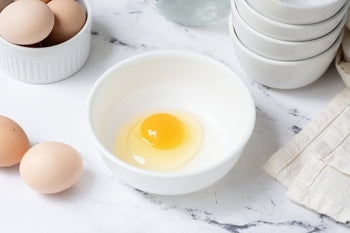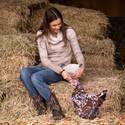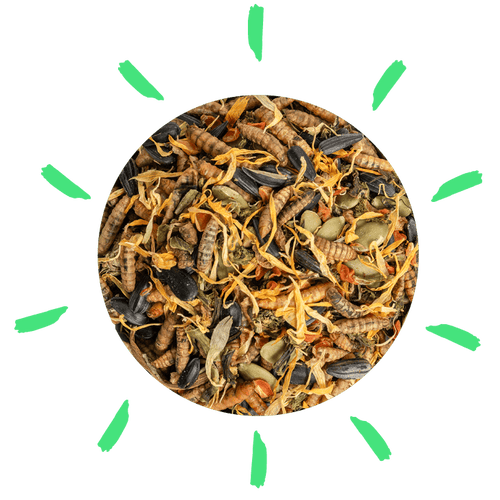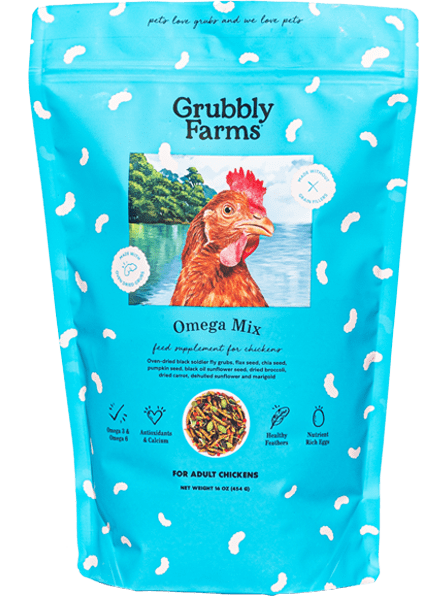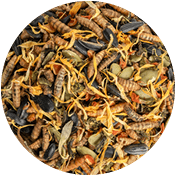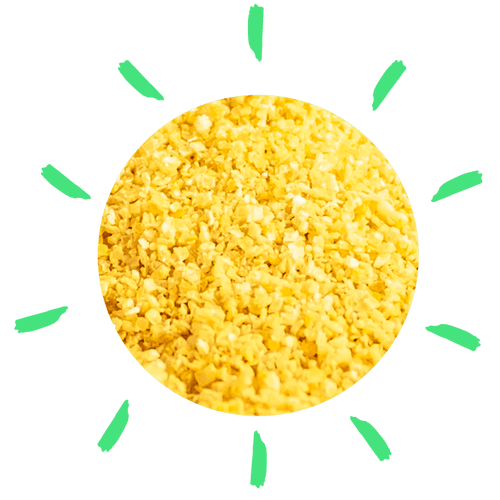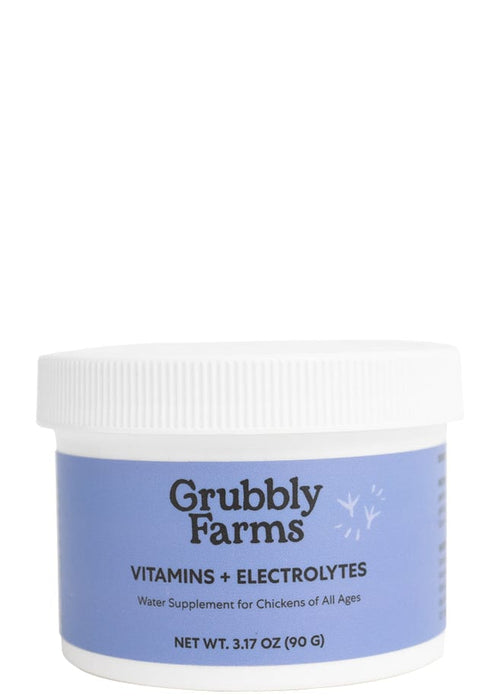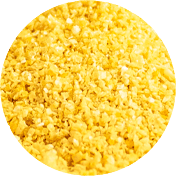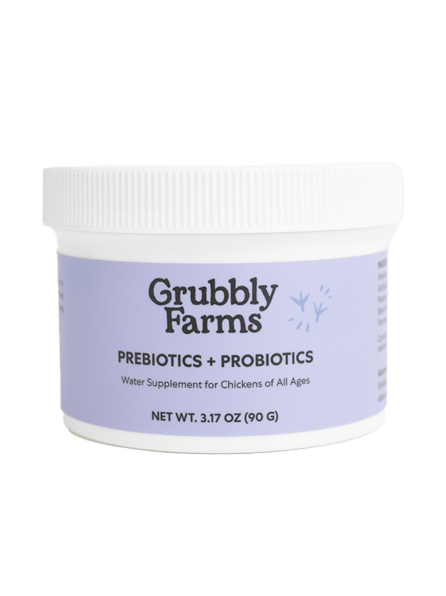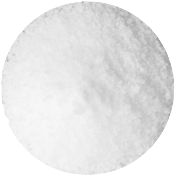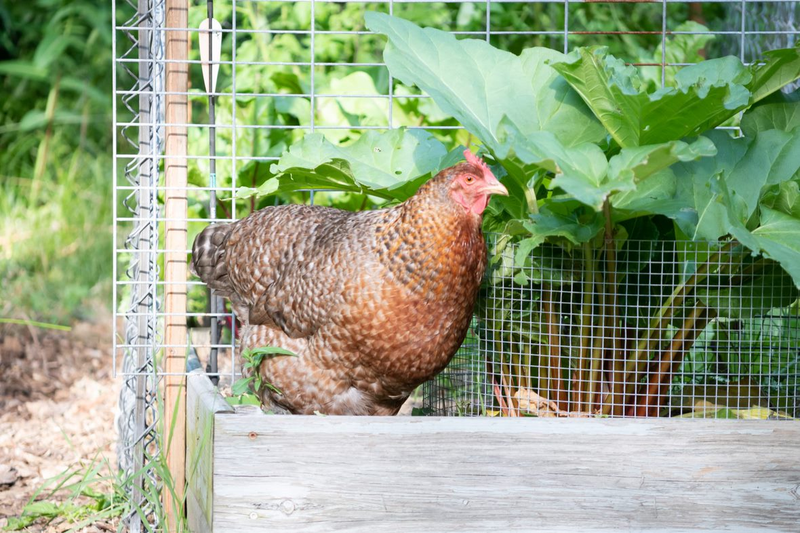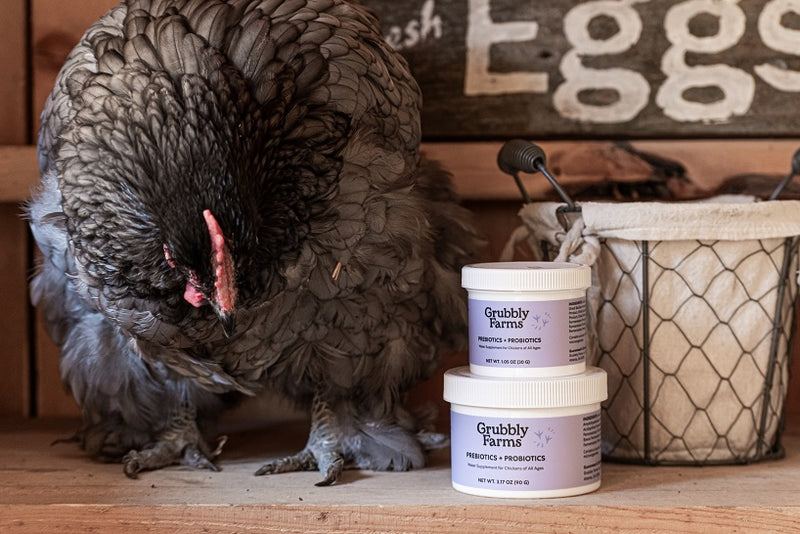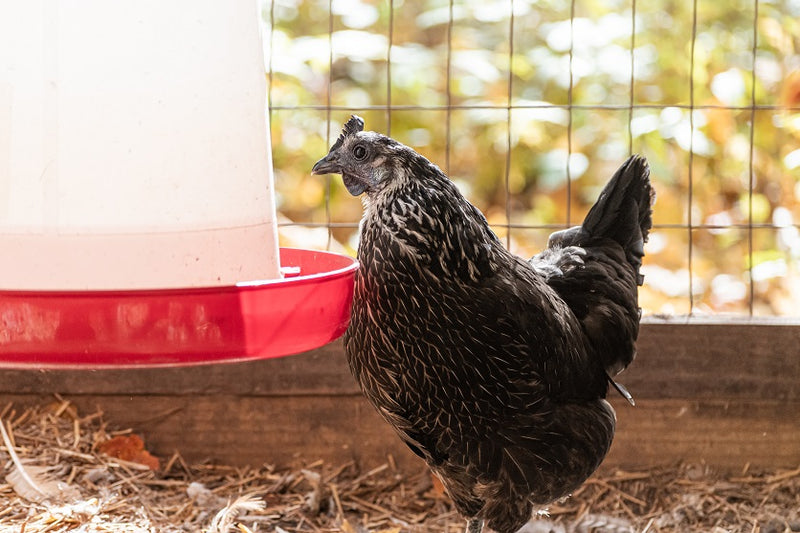One of the many joys of raising a backyard flock is collecting fresh eggs from the coop, then enjoying those fresh eggs in your cooking and baking! Eggs from the grocery store just don’t compare to the flavor, quality, and nutrition of fresh eggs. Eggs contain all the nutrition needed to sustain life (except for vitamin C). However, you can boost the nutrient density of your flock’s eggs by feeding them a well-balanced diet and ensuring they receive the best care possible. Let’s look at how you can achieve optimal egg quality from your hens!

Optimal Nutrition for Chickens: A Recipe for Quality Eggs
‘You are what you eat’ certainly applies to a hen and her eggs. If her diet is lacking in any essential dietary component her eggs will also decline in nutritional value. The more nutritious the hen’s diet, the more nutrient dense her eggs will be. Not only must a hen consume a balanced diet, but her diet must also be composed of high-quality ingredients that will be readily metabolized so nutrients can be passed on to her eggs.
Egg quality, yolk color, flavor, and egg nutrition can all be impacted by a hen’s diet. There are some fundamental nutrition factors that will not only result in better quality eggs, but your hens will also be healthier too! These fundamentals include feeding your flock a balanced diet, keeping their diet varied, and using appropriate supplements to boost egg quality and hen health.
Balanced Diet
At the foundation of your flock’s daily diet should be a high-quality layer feed. High-quality layer feed will contain the proper balance of all the daily nutrients a hen needs to stay healthy and produce eggs. The feed should be made from high-quality ingredients, be formulated for laying hens, and it should always be fresh.
The main nutritional components of a good layer feed include:
- Carbohydrates- provide energy and fiber to the diet
- Protein- essential for all body functions
- Vitamins & Minerals- needed for maintaining overall good health
- Fats- provide energy and aid with nutrient utilization in the diet
The layer feed should contain balanced amounts of these essential components. An imbalance in the diet can lead to health issues, such as too much fat in the diet will result in excess fat being stored in a chicken’s body. A lack of protein in the diet will negatively impact a chicken’s growth, development, egg production, and immune system. Balanced nutrition is essential in a high-quality layer feed.

Variety in Diet
A chicken’s diet should also be varied. The Red Jungle Fowl, our domestic chickens’ ancestors, were foragers. They would forage the jungle floor for a wide range of foods such as insects, nuts, seeds, grains, and leafy greens. Our domestic chickens should be fed a balanced layer diet to supply them with the essential nutrients they need on a daily basis, but their diet can be kept varied through the use of healthy snacks, treats, supplements, and forage.
These additions to your flock’s diet will supply supplemental nutrition from different sources than your flock’s daily feed. To keep your flock’s diet balanced, these dietary supplements should be supplied in moderation.
Healthy snacks are foods that would naturally be a part of a chicken’s diet, such as dried insects or leafy greens. These foods supply essential nutrients, like protein and vitamins, and don’t dilute the overall nutrition your flock is receiving from their daily layer feed.
Treats are additional foods, such as table scraps, leftovers, or suet cakes. These foods should be fed in moderation and should not exceed over 10% of your flock’s daily feed intake. Aim to feed your flock treats that will provide additional nutrition to their diet and avoid treats that simply add extra calories to your flock’s daily diet.
Supplements
Feeding your flock both a balanced and varied diet can be aided through the use of essential supplements. Natural supplements are used for a specific purpose in your flock’s diet. One essential supplement that laying hens should always have access to is a calcium supplement.
Calcium is needed in order for a hen to create a strong, healthy eggshell. A hen receives some calcium from layer feed, but sometimes additional calcium is needed to support proper body functions and egg production. Calcium supplements, such as Layer Calcium, or crushed oyster shells, should be supplied free-choice alongside your flock’s daily feed.
Other supplements that you may consider using for your backyard flock include herbal supplements, probiotic supplements, or vitamin & electrolyte supplements.
- Herbal supplements can help boost egg quality by adding nutrition and keeping the immune system strong for fighting disease.
- Probiotic supplements help improve gut health. A hen’s gut is the central system for extracting nutrition from her diet for good health and productivity.
- Vitamin and electrolyte supplements can aid during times of stress, such as periods of high heat, to help a hen stay hydrated and nourished.

Key Nutrients for Better Egg Quality
Each component of a hen’s diet works together to ensure she gets the key nutrients needed for staying healthy and producing high-quality, nutritious eggs. While all nutrients are essential for creating a nutritious egg, there are some nutrients that impact egg quality more than others.
Vitamins A and D
Vitamins A & D play a significant role in the quality of a hen’s eggs. Vitamin A supports a hen’s immune system and promotes a healthy reproductive system. When the immune system is strong, a hen will be able to stay healthy and put more energy into creating nutritious eggs. Vitamin A rich foods are also high in carotenoids. Carotenoids help enhance the color of an egg’s yolk. Healthy sources of vitamin A for chickens include forage, leafy greens, carrots, and flowers such as nasturtium and marigold.
Vitamin D is essential for calcium absorption and utilization. We already discussed how calcium is needed for creating strong eggshells, so ensuring that a hen’s body can absorb and utilize the calcium supplements in her diet is equally as important. Make sure your flock gets plenty of access to sunshine to help promote strong, healthy eggshells. If you live in an area with limited sun exposure at certain times of the year, consider supplementing vitamin D.
Calcium
As you might have guessed, calcium is another nutrient that impacts egg quality. It is necessary for creating strong eggshells to protect the egg. Supplemental dietary calcium (such as oyster shells or Grubblies) should be supplied so that a hen doesn’t have to draw calcium from her bones to create strong eggshells. However, vitamin D and phosphorus must also be present in a hen’s diet for her to metabolize the supplemental calcium.
Protein
Lastly, protein is a main contributor to egg quality and nutrition. Proteins, or amino acids, are the building blocks of life. They provide structure for bone and muscle development, maintain a strong immune system, are a key source of long-lasting energy, and are generally needed for every functioning system in a chicken’s body, including the reproductive system.
Protein is needed in a hen’s diet to stimulate a healthy reproductive system. Amino acids, in the form of hormones, trigger a hen’s body when it’s time to start forming a new egg, when an egg is ready to be laid, and other reproductive related actions. The amino acids in a hen’s diet contribute to the protein content of her eggs, most of which is found in the albumen, or egg whites.
A balanced layer feed should contain a minimum of 16-17% protein. However, additional dietary protein is often needed during times of stress or high production times. You can ensure your hens are getting the protein they need by supplementing their diet with protein-rich foods. Here are some healthy protein-rich foods for chickens:
- black soldier fly grubs
- sprouted lentils
- eggs
- insects
- seeds
- meat
- field peas
Boosting Egg Quality with Probiotics + Hydration
Healthy chickens will produce healthy eggs. Incorporating probiotics into your flock’s diet can help boost egg nutrition and egg quality. Probiotics do this by helping your hens stay healthy and productive.
Gut Health
Probiotics mainly benefit a chicken's gut. Probiotics themselves are beneficial microbes that aid digestion, nutrient absorption, and fend off harmful microbes through competitive exclusion. A healthy gut contributes to better nutrient absorption. The good microflora in a chicken’s gut help break down foods to make the nutrients, vitamins, and minerals in the foods more readily available. When a hen can get more nutrients from the foods she eats, her eggs will also be more nutrient-rich.
Probiotics can be introduced into a chicken’s diet through supplemental probiotics or probiotic rich foods. Foods naturally rich in probiotics include fermented foods and foods containing live cultures like yogurt.
Ensuring Adequate Hydration
Supplemental probiotics are often added to your flock’s drinking water. This also encourages good hydration. Water is needed to transport nutrients throughout a chicken’s body. Water also makes up about 65% of an egg’s weight. If a hen is dehydrated, she will stop laying to retain more water for other body functions.
Adding a probiotic supplement to your flock’s drinking water will not only provide them with probiotics for boosting gut health, but it will also encourage them to drink and stay hydrated. You will need to make sure your flock always has access to clean, fresh water whether you add supplemental probiotics to their water or not.

Creating the Ideal Environment
Hens will lay better quality eggs when they are not stressed. Having the ideal conditions for laying hens will make them feel comfortable, relaxed, and stress-free so they can focus on creating nutritious, quality eggs. Here are some laying flock care considerations that will help your hens stay healthy and productive:
Coop Conditions
The chicken coop should be designed for laying hens. Laying hens need plenty of space, proper lighting, and ideal nesting locations. Hens need 12-16 hours of daylight to trigger reproduction. Sunlight supplies natural light for laying hens, but when the daylight hours start getting shorter, hens will naturally decrease in productivity. Younger hens need less light than older hens and will often lay even when daylight hours are minimal during the winter months.
The chicken coop should also have properly designed and located nesting boxes. The nesting boxes should be large enough to accommodate your largest laying hen. They should be in a dark, private area of the coop away from drafts or direct sunlight. Hens also like their nesting locations to be lower than where they roost.
Make sure the nesting boxes have good nesting litter in them. Hemp, straw or large flake wood shavings are ideal nesting box litter since they are soft and can easily be shaped into nests. The nesting boxes should be kept clean and the litter should be replaced on a regular basis.
Stress Management
Stress will cause hens to stop laying. Whether it's stress from fighting a disease, stress from overcrowding, stress from boredom, or stress from a predator attack... any kind of stress can be enough to make a hen stop laying as she focuses energy on other functions.
A stress-free environment will help your hens stay healthy and productive. Here are some ways to help reduce stress for your laying flock:
- Minimize disturbances (loud noises, etc...)
- Properly predator proof the coop & enclosure
- Handle your birds gently and calmly
- Avoid sudden changes in the environment
- Implement heat stress prevention during the summer
- Implement cold stress prevention during the winter
Regular Health Check-ups
When a hen is unhealthy, she will stop laying to focus on fighting a disease or healing an injury. Taking measures to help your flock stay healthy will ensure that they stay productive too. Here are some ways to regularly monitor the health of your laying hens:
- Monthly head to toe checks
- Daily monitor droppings (poop)
- Daily monitor behavior of all birds
Lethargy, a stop in laying, and non-normal poops are often the first signs that a hen is ailing. When you notice that a hen is not acting normal, move her to a separate quarantine pen to monitor her more closely and administer any special care she might need. Seeking advice from an avian vet or experienced veterinarian is always a good idea when dealing with a sick hen.
Doing regular health checks on all the hens in your flock and watching their behavior daily can help you catch any conditions before they become serious! The sooner a hen recovers from an ailment, the more likely she will go back to normal egg production. In serious cases, a disease, injury, or ailment may cause a hen to lay abnormal eggs, lay sporadically, or even stop laying completely.
Conclusion
The quality and nutrition of the eggs your backyard flock produces are directly impacted by your flock’s diet and how you care for your flock. Make sure your laying flock always has access to a balanced layer feed. The layer feed will supply your flock with all the essential nutrients they need on a daily basis. Incorporating natural supplements and healthy snacks into your flock’s diet can boost the nutrition your flock receives, which leads to more nutrient-dense eggs. Make sure the chicken coop is properly designed for laying hens and prevent any stressors that can affect your hens. With a proper diet and daily care, your backyard hens can produce quality, nutritious eggs for you to enjoy!





